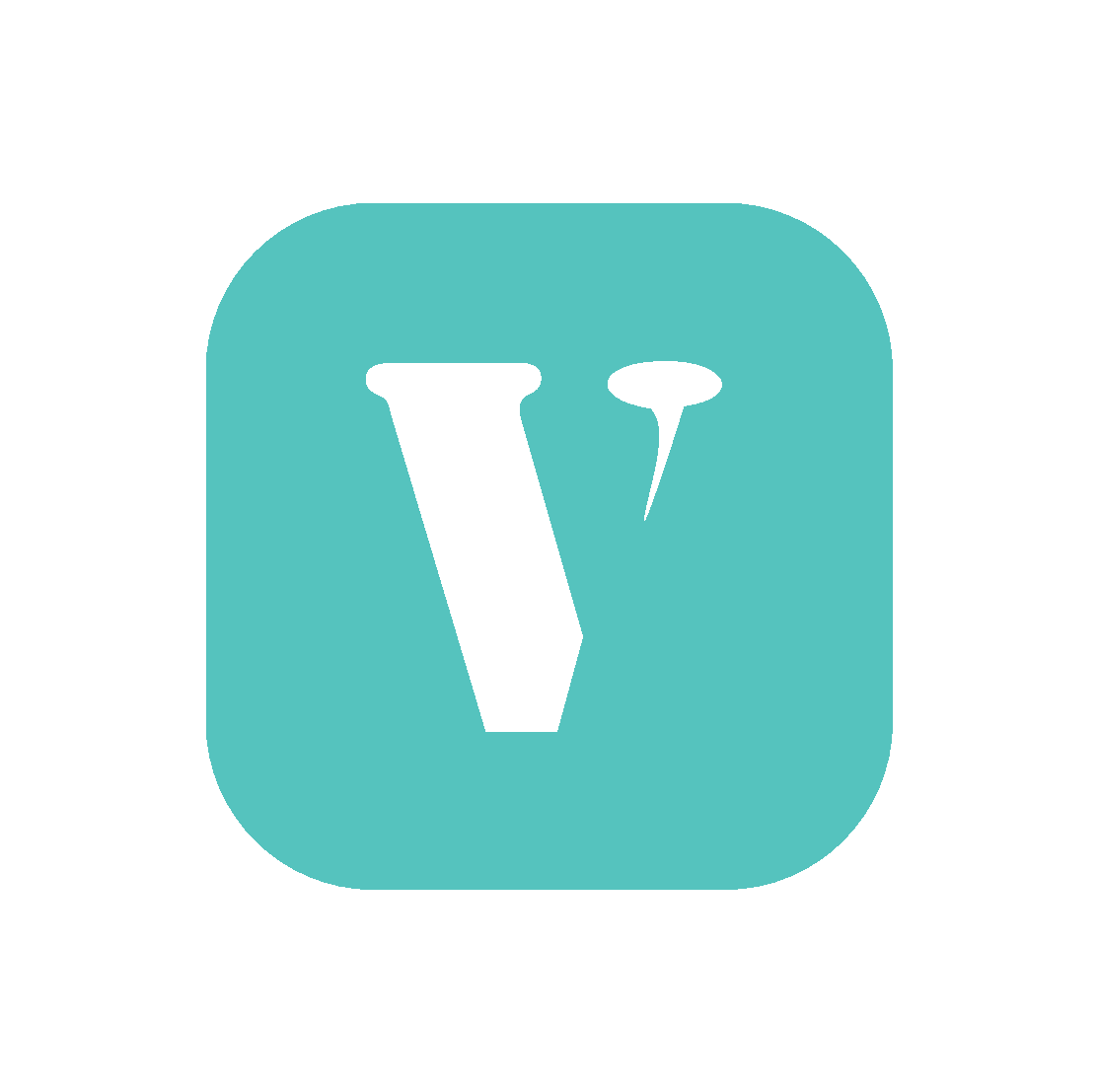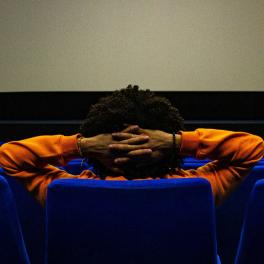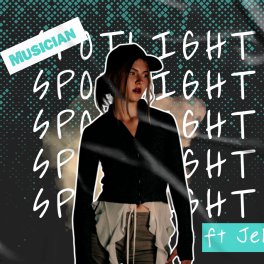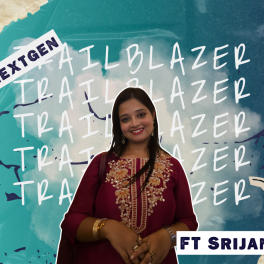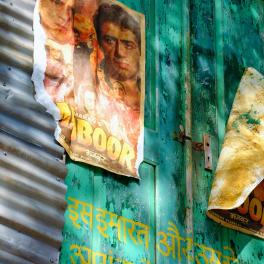
London-based, genre-bending singer, songwriter, and budding producer Niemba is carving out and securing her space in the music industry. From recording voice memos on a 3DS as a child to studying Music Tech at university, her journey has been shaped by resilience, and a deep love for sound. Blending lyrical honesty with vulnerability, Niemba tells the stories many are afraid to say out loud. In this interview, she opens up about finding her sound, navigating burnout, and learning to take up space as an emerging artist.
Interview conducted by VoiceBox's Lauren Louisha

Hey Niemba, we’re so happy to have you join us today! Can you tell us a bit about how your music journey got started?
I struggle recalling memories sometimes due to trauma, but I remember being about 11 or 12 with a 3DS that had a voice notes app on it. I had an old Yamaha keyboard that belonged to my older brother, and I’d play different chords and sing along to them and record them on my 3DS. I’d play the prerecorded beats from the keyboard out loud on loop and record them on my 3DS, because I wanted to make a beat based on them.
Being in a church choir is one of my earliest memories of singing. I have a long history of scream-singing in my old church choir with my mum. I was a Catholic Christian (not anymore, though), and my mum always said I’d sing louder and better than her, and the choir agreed.
I studied Music Tech at uni, BTEC Music at sixth form, and GCSE Music. But like a lot of musicians, listening to music and always being around it was a core part of my upbringing. As turbulent as my journey and relationship with music have been, I’m still very drawn to it.
How would you describe your current sound, and how does it reflect where you are personally and creatively?
My current sound is highly experimental. Even though I’ve only got three tracks out, they sound completely different to each other, and I think that reflects how indecisive I am as a person. For example, Tuesday is dance-,y and Cherry is a pop track.
I want to do a bit of everything and release different genres of tracks like R&B, house and pop, but that can get overwhelming and might not land well. But sticking to just one genre would also limit me, and I don’t want to be put into a box, so it’s a struggle.
I admit that I’m too comfortable watching my mutuals and my age mates from the sidelines and dreaming of having the work ethic they have. But in the same breath, I can learn a lot, and I am learning a lot about applying myself and working hard. I believe I’m capable and I’m a great artist, I just have trouble getting people to see that and see who I am.

In our initial chat, you told us you’ve been working on new ideas for the past few months. Can you tell us more about those and your creative process?
I have tracks that I’ve been wanting to release for years now, including an EP, but because I feel like it’s different from what people would expect, it’s deterred me from releasing it. But I still am a baby artist, so there really isn’t any expectation or standard that I have to reach. My EP release is a way for me to set an initial benchmark for myself.
When it comes to my creative process, I’m working on being everywhere and talking about myself more, because how else are people going to know? I’ve applied for things like Roundhouse Works, which is a development programme and co-working space, and I’m on another development programme with On Road and Serious Play where I get to work on my brand, refine my sound and aesthetic. I also completed a production course with Lewisham Music (shoutout to Tilda) where I composed a brief. It was so fun and I learned that I’m not that bad at producing (I say that with a degree in Music Tech, but anyways!) Presenting myself as an artist and having a strong brand identity, and the whole “who am I” element goes hand in hand with what I create.
You mentioned to us that you often build songs starting with chords and synths. Is that for any particular reason?
I think it’s got to do with the piano lessons I’d been going to from age 7, II learned a lot about chords, major and minor scales, flat and sharp notes, so I was somewhat equipped. I had to make do with singing and playing chords on my electric keyboard and getting my ideas recorded on my 3DS. Fast forward to when I got an iPhone for the first time in 2017 and started using GarageBand.
I still use it to work out demos, and most of the tracks I plan on releasing, I’ve made there. GarageBand is an app that should not be slept on or underrated! My song ‘Cherry’ was made on it, you can stream it now!
Using synth sounds was the easier and more accessible option for me. Although the synths sounded quite stock-y, you can easily use the parameters, and things like ASDR, to get a sound that you like better and can work with.
You’ve studied music from the time you were doing your GCSEs to now, a degree at university in music tech. Has your formal education helped shape your approach to creating music?
I started studying music in year 7, but it was just part of the curriculum and wasn’t something I actively studied. Even after picking Music as an option at GCSE, I wasn’t thinking of pursuing it or trying to get a career out of it. I wrote one song that a teacher helped me produce, and I performed it at music showcases at school, then left it alone completely. My parents weren’t as supportive of me pursuing a career in music and creating full-time, so I focused on music less and less, and even made peace with not picking it up again, as it felt like it wasn’t a tangible career path.
But going to university and getting a degree changed my perspective. It now feels like ‘I’m putting so much effort into making it work for me, so of course it’s going to work’, you know? I also think having some music education, like music theory, helps me connect with musicians and producers better. It’s not required, but for me personally, it’s been more of a motivator and I’m able to apply my knowledge, really connect with it and tap into it when it’s time to create something. Music is a language, and I’m glad I dedicated time to study it for a bit.
Is there a specific message or vibe you want listeners to take away from your EP?
My EP is me expressing that I feel stuck and I’m unhappy, but I’m grateful for the beautiful moments despite their fleeting nature. Because it’s called “Limbo”, I wanted it to be super melancholic and riddled with ballads, but I’ve found that I prefer having tracks that touch on all kinds of emotion. Throughout the period of time when I was in limbo and felt stuck, I experienced pure joy, deep sadness, and felt nothing at all. I was vulnerable and tried to capture my feelings, which I feel is the only thing that art asks for, right?
The main message I want people to take away is not to disregard your pain or regret allowing things or people to hurt you, or regret tolerating disrespect. Lean into it and talk about it. The right people will support you and listen to you, but there’ll also be people trying to argue with you about how you feel.

Let’s talk about your latest release, 'Tuesday'! It’s about limerence, which is such a complicated and addictive state to be in. How did you find writing about it, and how did you balance its complexity whilst keeping it upbeat?
Limerence is and was hard to navigate, and I don’t think I would have been able to capture what I was feeling in lyrics properly, so I kept it relatively simple. A song like that with some really intense lyrics would catch people off guard, and I didn’t want to pour my heart out into something when most people just want to dance. I thought about how in OutKast’s “Hey Ya” Andre 3000 says, “y’all don’t wanna hear me, you just wanna dance” and that definitely applies here.
Looking back, I realise I made the writing process so easy by repeating lyrics and keeping the message simple. I was also writing about a situation that I hadn’t fully grasped or come to terms with yet. It wasn’t love, it was limerence, baby!! I think in terms of song structure, if the lyrics aren’t complex, then the instrumentation has to be and vice versa. That’s the balance that I prefer.
You’ve been promoting your song “Tuesday” on social media, how has that been? And do you have any advice for up-and-coming musicians who want to use social media platforms to connect with new listeners?
Promoting is the trenches. It isn’t that I hate it because I might not get much engagement, but because I do everything from writing to recording to releasing so it’s like, I also have to promote myself too? I need a break!
It’s nice when you have a few people who consistently engage with you and support you, rather than have tons of people who dip in and out depending on what you do. I remember hearing Jammer, British Grime MC, say that it’s important and so worthwhile to focus more on the few people that are there consistently and show undying and unwavering love and support.
It’s important to find a rhythm or pattern that works for you! I haven’t necessarily got it down yet, and at first, likes may be low, but consistency is always key.
One thing I admire is seeing people engaging in the comment section of other videos. It ties into the idea that you have to be everywhere and should be comfortable with being seen. I’m for sure going to take that on and do the same. Even if the comment gets no likes, you could end up gaining a lifelong friendship or a really useful and strong business connection.
You’ve talked about taking breaks from music when feeling burnt out. What strategies have you found helpful in balancing your creativity and self-care?
I’m black, chronically ill AND a Capricorn, so resting and recuperating are not things I resort to unless I’m physically incapable or I’m having a flare-up. I definitely don’t think I’m afforded the same amount of grace as my white counterparts when wanting to take a break, nor can I realistically afford to stop.
But recently, I’ve stopped posting on Instagram or TikTok as much, and I feel more at ease. I think coming off of social media to figure things out is the one and only strategy that helps to keep me from going crazy.

Social media is addictive, and you get into the habit of consuming and consuming, and all the hours you spend scrolling on reels and the FYP is time taken away from pouring into your artistry, your creativity and also just overall peace of mind.
I’m so tired of consuming, comparing and not living in my own reality. I know that I’m capable, talented, smart, and all things incredible, so it’s about time that I embrace that instead of hiding behind the fear of what will happen when people see me, or shrink myself to make others comfortable.
If you’re like me and social media makes you nervous, it’s all about making it work for you and using it in a way that will help you. Doomscrolling is inevitable, but we have to be serious and intentional with everything it is that we want to achieve. Lock in!
It’s been so lovely to interview you today, thank you for joining us! Our final question for you is, what’s one piece of advice you would give someone who’s just starting their career in music?
Thank you for interviewing me and seeing me. These questions have helped me figure myself out a lot more! Something I think that I’ve realised is that you have to surround yourself with people who do similar things to you. This isn’t an invitation to cut off any friends who aren’t musicians or aren’t creative, but it’s worth sourcing people you can hang out with and talk about the industry, or listen to each other’s demos and provide constructive feedback. There’s a more shared understanding and connection to music with people on similar journeys to you.
Another thing I’d say is hold yourself accountable. If you're going to do something, then do it and go for it. I’ll always say I’m going to release music, do gigs or open mics, and then I don’t and hide myself away. By delaying things, I’m telling myself that I’m okay with seeing results and progress later, or that my artistry doesn’t come first. In short, be proactive, be intentional, and no matter how small the action you take is, you’ll still have made progress. You always have to congratulate and celebrate yourself.
Support Young Creators Like This One!
VoiceBox is a platform built to help young creators thrive. We believe that sharing thoughtful, high-quality content deserves pay even if your audience isn’t 100,000 strong.
But here's the thing: while you enjoy free content, our young contributors from all over the world are fairly compensated for their work. To keep this up, we need your help.
Will you join our community of supporters?
Your donation, no matter the size, makes a real difference. It allows us to:
- Compensate young creators for their work
- Maintain a safe, ad-free environment
- Continue providing high-quality, free content, including research reports and insights into youth issues
- Highlight youth voices and unique perspectives from cultures around the world
Your generosity fuels our mission! By supporting VoiceBox, you are directly supporting young people and showing that you value what they have to say.

